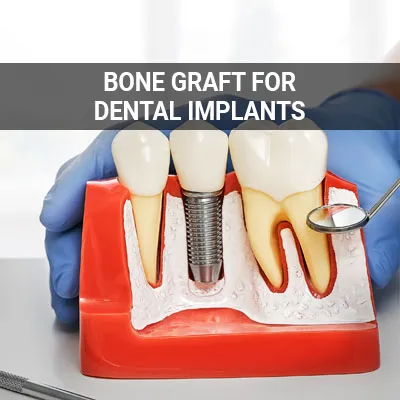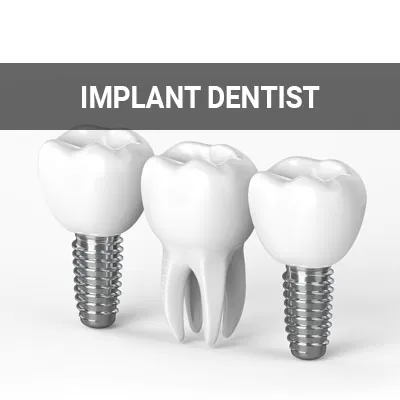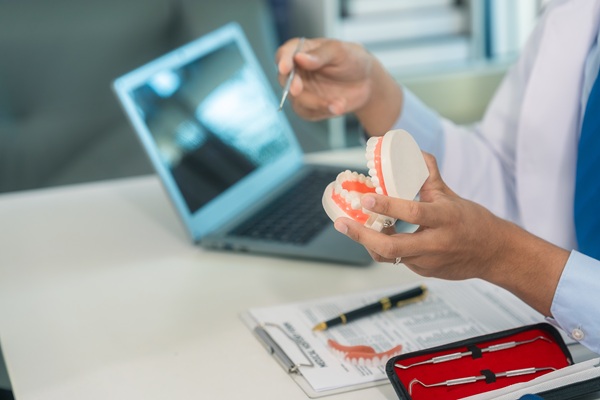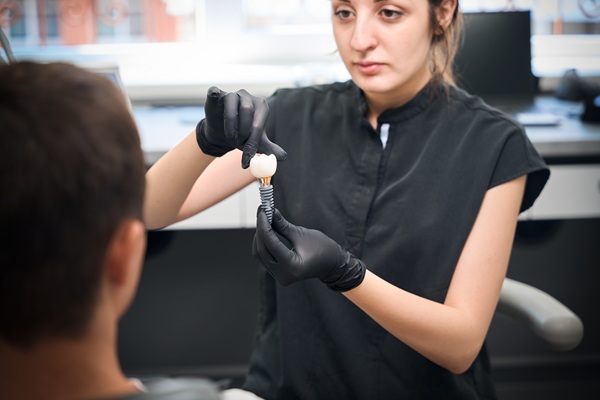Dental Implant Surgery Alpharetta, GA
Dental implants are teeth prostheses usually used for adults with missing teeth. Implant restorations are designed to feel, function, and appear like natural teeth. Dental implant surgery involves the surgical placement of implant posts into the jawbone.
Dental implant surgery is available at Windward Parkway Dentistry in Alpharetta and the surrounding area. Aside from the cosmetic benefits of dental implants, they also help preserve the oral cavity structure. To learn more about this process, call our office at (770) 814-6224 to book an appointment with Windward Parkway Dentistry.
Dental Implant Surgery Consultation
It is common for patients to experience varying levels of anxiety before dental implant surgery. Understanding more about the preparation, surgery, and aftercare can help put patients at ease. We can address any concerns or questions the patients have about the process at the initial consultation.
Our team will examine the patient's mouth and assess the patient's oral and physical health. We will take X-rays to determine the placement of the implant and if the jaw bone is ready to support it. You should tell us about any medications you are taking or conditions you have as they may affect the outcome of the surgery and healing.
“It is common for patients to experience varying levels of anxiety before dental implant surgery.”
Preparing for the Surgery
Dentists typically perform dental implant surgery in multiple stages, allowing the jawbone to heal fully before attempting further operations. The surgery starts with a process known as "site preparation." This requires preparing a small hole in the bone, called an osteotomy. The dentist will create small incisions on the gums (to form small flaps) to reach the bone. Then, they will provide a visual of the bone's shape and location.
If a surgical guide was created, the dentist will place it in the patient's mouth and perform the osteotomy through it for accuracy. The dentist will use a drilling sequence that increases the hole gradually until it matches the implant shape perfectly for the required precision fit.
“Dentists typically perform dental implant surgery in multiple stages, allowing the jawbone to heal fully before attempting further operations.”
What to Expect During Dental Implant Placement
During dental implant surgery, the surgeon makes an incision into the gums where the missing tooth was. The surgeon then drills into the jawbone. After accessing fairly deep inside the jawbone, the surgeon will position the dental implant post. The post along with the surrounding bone serves as the primary support of the artificial tooth.
We will not place the artificial tooth until after the implant fuses with the surrounding bone through a process known as osseointegration. This process typically takes several months. In the meantime, there will be a gap where the missing tooth (or missing teeth) was. Your dentist may recommend a temporary replacement tooth until the mouth and implant are ready for the placement of the abutment and artificial tooth.
“The implant is essentially in the same place the root of the natural tooth was.”
Check out what others are saying about our dental services on Yelp: Dental Implant Surgery in Alpharetta, GA
Post-Op Care
After the surgery, it is normal to experience the following:
- Bruising
- Facial and gum swelling
- Minor bleeding
- Pain around the surgery site
If the symptoms persist for more than a few days after surgery, patients need to contact the dentist immediately, as it may indicate a more significant issue that needs urgent treatment. The dentist may recommend eating only soft foods and applying ice packs to alleviate the swelling to promote healing.
Dental implants generally have a high success rate, but there may be complications related to the bone's integration with the dental implant. Following these practices may help to lower the risk of complications:
- Adopt good oral hygiene practices
- Avoid smoking or using tobacco products
- Shun harmful oral habits, such as chewing on hard substances and teeth grinding
- Visit the dental office regularly
“Dental implants generally have a high success rate, but there may be complications related to the bone’s integration with the dental implant.”
Questions Answered on This Page
Q. What happens during the initial consultation?
Q. What happens during the implant placement surgery?
Q. What are the risks of dental implant surgery?
Q. How should someone prepare for dental implant surgery?
Q. What should a patient do after dental implant surgery?
People Also Ask
Q. Who is a good candidate for dental implants?
Q. How can I prepare for my first implant procedure?
Q. What is the importance of follow-up appointments after implant treatment?
Q. What do I do if my implant feels loose?
Risks Associated with Dental Implant Surgery
The success rate for dental implant surgery is high, and complications are rare and typically not a serious concern with prompt dental care. Primary complications include nerve damage or injury to an adjacent tooth. According to the Centers for Disease Control and Prevention, oral surgery raises the risk of local or systemic infection. However, we will take every precaution to help the patient avoid these complications. We will provide detailed instructions on how to recover, which may include good oral hygiene and possible medication to prevent infection.
The failure rate of dental implant surgery is low—only 5-10%. Bone loss is a leading cause, but something that can be remedied. It is not uncommon for those undergoing dental implant surgery to need bone grafting to prepare the jaw. This adds several months to the process, but greatly increases the chance of success.
“We will provide detailed instructions on how to recover, which may include good oral hygiene and possible medication to prevent infection.”
Frequently Asked Questions
Q. What can I use for pain management after dental implant surgery?
A. The dentist will likely recommend Tylenol® or non-steroidal anti-inflammatories such as Advil®, Motrin®, or Aleve® to alleviate pain. You need to use any prescribed medication according to the dentist's instructions. Ensure you eat or drink something before taking any pain meds, so you do not feel nauseated.
Q. What can I eat after the surgery?
A. It is advisable to stick to soft and easy-to-chew foods. Good examples include yogurt, ice cream, smoothies, steam vegetables, and warm soup. Ensure you avoid tough or sharp-edge foods such as steak, tortilla chips, and pretzels.
Q. How long before I get back to normal after my dental implant surgery?
A. Most patients get back to normal within a week after the implant surgery. The first few days may be slightly uncomfortable, but your condition will improve over time. Follow aftercare instructions to ensure a smooth recovery.
Q. Can I get a new tooth immediately?
A. The dentist will be able to provide an estimate of the treatment timeline after the initial evaluation. The dentist may provide qualifying patients with a temporary dental prosthesis to wear during the osseointegration process. However, the dentist will only place permanent dental restoration after the bone heals fully.
Dental Implant Terminology
Call Us Today
Get in touch with our team today at 770-814-6224. We respond to all who are interested in our services promptly. On your first visit, we will answer your questions, provide information about the process, and help you make an informed decision about dental implant surgery.
Helpful Related Links
- American Dental Association (ADA). Glossary of Dental Clinical Terms. 2024
- American Academy of Cosmetic Dentistry® (AACD). Home Page. 2024
- WebMD. WebMD’s Oral Care Guide. 2024
About our business and website security
- We accept the following payment methods: Cash, Check, Discover, MasterCard, and Visa
- We serve patients from the following counties: Fulton County
- We serve patients from the following cities: Alpharetta, Bethany Crossing, Herring Township, and Milton
- Norton Safe Web. View Details
- Trend Micro Site Safety Center. View Details
Back to top of Dental Implant Surgery











